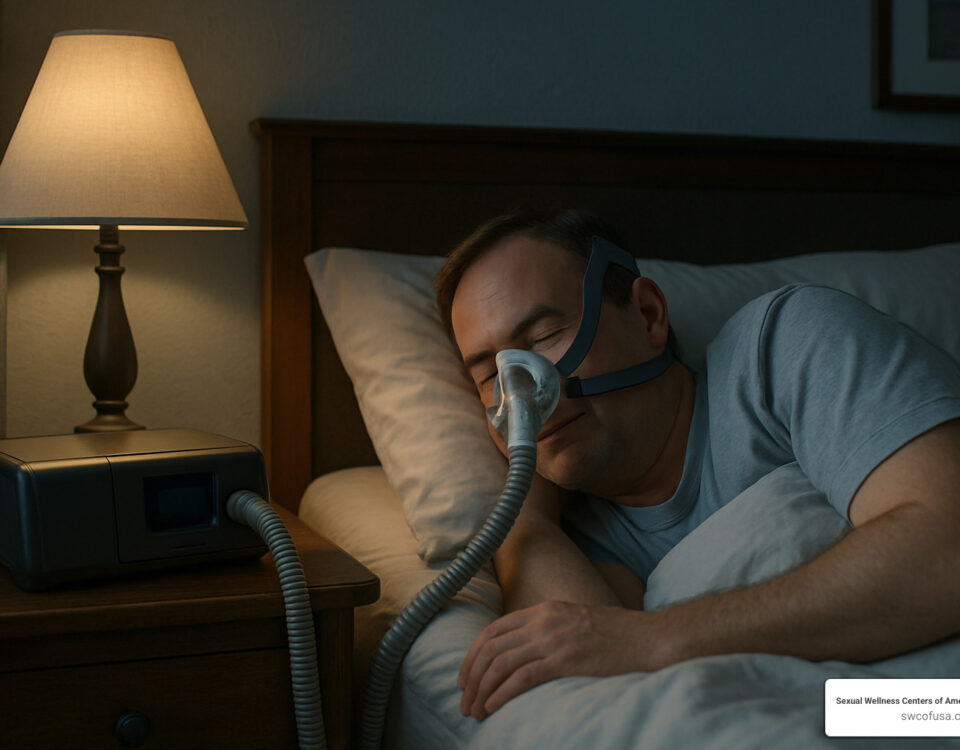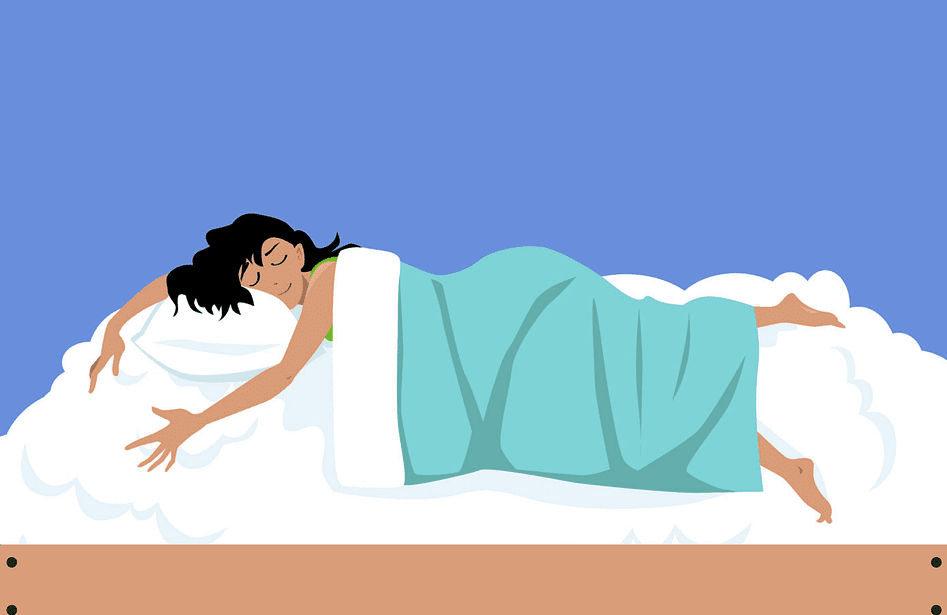
Best Sleep Health Tips for Deep and Restful Nights
August 12, 2025
Sexual Health Tips for Couples Over 40
August 12, 2025Struggling to fall asleep or stay asleep can be frustrating and exhausting. Insomnia, the condition of having trouble with sleep, affects millions of people worldwide and can seriously impact your daily life. While sometimes medications are necessary, many people prefer natural ways to improve their sleep without side effects.
The good news is there are plenty of effective, natural strategies you can try right at home to treat insomnia. This article will explain what insomnia is, why it happens, and share practical, easy-to-follow tips for falling asleep faster and enjoying deeper, more restful nights—without relying on pills.
What Is Insomnia?
Insomnia is the difficulty falling asleep, staying asleep, or waking up too early and not being able to get back to sleep. It can be short-term (acute) or long-term (chronic). Common symptoms include feeling tired during the day, trouble concentrating, irritability, and low energy.
Why Does Insomnia Happen?
Insomnia can have many causes, including:
- Stress and anxiety
- Poor sleep habits or an irregular sleep schedule
- Caffeine or alcohol consumption, especially late in the day
- Medical conditions such as chronic pain or restless leg syndrome
- Environmental factors like noise, light, or uncomfortable temperatures
- Certain medications or substances
Understanding your triggers is the first step toward managing insomnia naturally.
Natural Ways to Treat Insomnia at Home
1. Create a Consistent Sleep Schedule
Going to bed and waking up at the same time every day trains your body’s internal clock and improves sleep quality. Try to stick to this schedule even on weekends.
2. Make Your Bedroom a Sleep Sanctuary
Keep your bedroom cool, quiet, and dark. Consider blackout curtains, white noise machines, or earplugs to block out distractions. Invest in a comfortable mattress and pillows that support restful sleep.
3. Limit Screen Time Before Bed
Blue light from phones, tablets, and computers can interfere with melatonin, the hormone that regulates sleep. Aim to switch off screens at least an hour before bedtime.
4. Practice Relaxation Techniques
Activities like deep breathing, meditation, progressive muscle relaxation, or gentle yoga can calm your mind and prepare your body for sleep. Even simple breathing exercises for 5-10 minutes can be powerful.
5. Avoid Stimulants Late in the Day
Cut back on caffeine, nicotine, and other stimulants, especially in the afternoon and evening. Also, be mindful of alcohol; while it might help you fall asleep initially, it often disrupts sleep later.
6. Be Mindful of What You Eat and Drink
Heavy meals close to bedtime can cause discomfort. Instead, opt for light snacks if you’re hungry. Warm milk, herbal teas like chamomile or valerian root, and foods rich in magnesium can promote relaxation.
7. Get Regular Exercise—but Not Too Late
Exercise helps improve sleep but avoid vigorous workouts close to bedtime, which can be stimulating. Aim to finish exercising at least 3 hours before you go to sleep.
8. Manage Stress and Anxiety
Journaling before bed, writing down worries, or talking to a friend can help clear your mind. Consider incorporating daily mindfulness or stress management practices into your routine.
9. Limit Naps or Avoid Them
If you nap, keep it brief (20-30 minutes) and avoid late afternoon naps that may interfere with nighttime sleep.
10. Use Natural Sleep Aids Carefully
Some natural supplements like melatonin, magnesium, or herbal teas can support sleep, but consult your healthcare provider before starting any new supplement.
When to See a Doctor
If your insomnia lasts more than a few weeks, significantly impacts your daily life, or is linked to other health problems, it’s important to seek medical advice. Sometimes, underlying conditions need treatment or professional sleep therapy is recommended.
5 FAQs About Treating Insomnia Naturally at Home
1. How long does it take to see improvement with natural treatments?
It varies, but many people notice better sleep within 1-3 weeks of consistent practice.
2. Can I use essential oils to help with insomnia?
Yes, scents like lavender are known for relaxing properties. Use a diffuser or apply diluted oils to your pillow.
3. Is it okay to use melatonin supplements every night?
Melatonin can be helpful short-term but is not recommended for long-term use without medical supervision.
4. What if I wake up in the middle of the night and can’t fall back asleep?
Try a quiet, non-stimulating activity like reading or listening to calm music until you feel sleepy again.
5. Can poor sleep habits cause chronic insomnia?
Yes, inconsistent schedules, excessive screen time, and poor sleep environments can all contribute to long-term insomnia.
Final Thoughts
Treating insomnia naturally at home is possible with the right habits and a calm, supportive environment. By understanding your body’s needs, managing stress, and creating healthy routines, you can reclaim your nights and enjoy restorative sleep.





